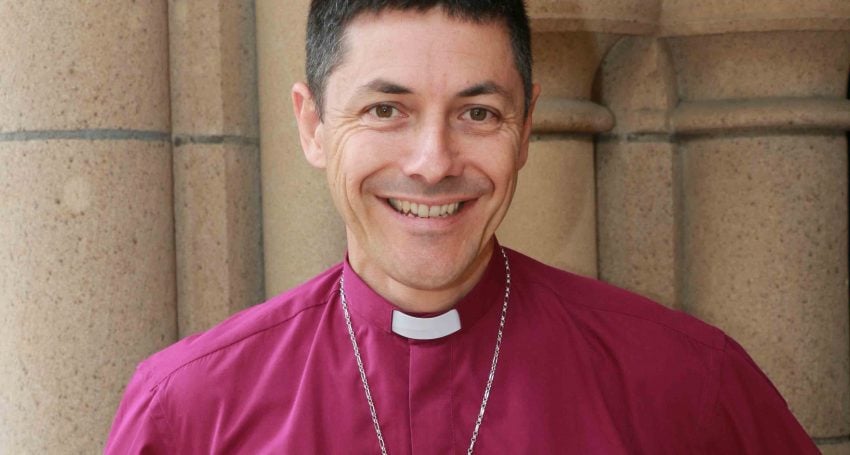“Gambling took over for me when…it was all I could think about”
Features
“In Queensland there is one poker machine for every 112 people and in the three-month period from October to December 2020, players spent over $740 million on poker machines – that’s over $8 million every day,” says Bishop Jeremy Greaves as Responsible Gambling Awareness Week approaches

A new campaign launched in time for this year’s Responsible Gambling Awareness Week involves different people telling the story of when gambling took over their lives. Allen, David and Louise all talk about how it was not until gambling completely took over their lives that they realised they needed help.
Responsible Gambling Awareness Week is an annual event that encourages gamblers to stay within their limits and also highlights the support available to people who feel gambling may have become a problem for them or someone they know.
This year’s theme is ‘When gambling took over…’, to remind people that gambling problems can affect anyone, from all walks of life, and there is help available.
Per capita, Australian adults are the largest spenders on gambling in the world, at around double the average of other Western countries (The Economist) and we know from research that 70 per cent of Queenslanders gamble.
While only a small proportion of these people will develop a problem with gambling, 60 per cent of clients of gambling help services say that gaming machines are their biggest challenge.
In Queensland there is one poker machine for every 112 people and in the three-month period from October to December 2020, players spent over $740 million on poker machines – that’s over $8 million every day.
In Queensland, the odds of winning the top prize on a poker machine is around 1 in 7 million and the machines are cleverly designed to make you think you’re getting close to a bigger win so keep you playing for longer. Machines might also offer the option of playing ‘multiple lines’ which imply an increase in odds. But no matter what, the odds are the same and the more you play the more you lose.
Advertisement
A major Government-funded study in 2017 showed that across Australia, electronic gaming machine (EGM) players were over-represented among people for whom welfare payments formed their main source of income and overall, gamblers living in low-income households spent, on average, a much greater proportion of their household’s total disposable income on gambling than high-income households (10% vs 1%).
EGM players are substantially overrepresented among vulnerable groups, including those aged 50 and older, people who identified as Aboriginal or Torres Strait Islander, who had 10 years or less of schooling or had completed a certificate or diploma, were retired, lived alone or with only their partner, lived in an inner regional area, those who had lowest incomes, and those who drew their main source of income from welfare payments. There is plenty of evidence to suggest that there are often higher concentrations of poker machines in suburbs where there are higher percentages of people on welfare or on the lowest incomes.
Gambling is often portrayed as an essential part of Aussie identity and it can be fun to have the occasional flutter, but it is important to be mindful of when ‘gambling takes over’ and what help and support is available if that happens for you or for someone you care about.
If you, or someone you know, needs help with a gambling problem, the following organisations and resources can assist:
Advertisement
Gambling Helpline: 1800 858 858
Lifeline: Problem Gambling Fact Sheet
Bishop Jeremy Greaves is the Heads of Churches Representative on the Queensland Responsible Gambling Advisory Committee (RGAC). The Queensland RGAC is a partnership between community, industry and Government. Its membership includes gambling support providers, industry peak bodies, community groups and Government. The RGAC is recognised in the Queensland Responsible Gambling Strategy as being the cornerstone of the Queensland Government’s approach to responsible gambling and a primary source of advice on emerging social concerns associated with gambling in Queensland.
Author’s note 06/07/2021: Following publication of the above, I received the latest figures for Queensland electronic gaming machine (EGM) expenditure, with total EGM club and hotel player expenditure in Queensland for the first quarter of 2021 being $647,199,835.






